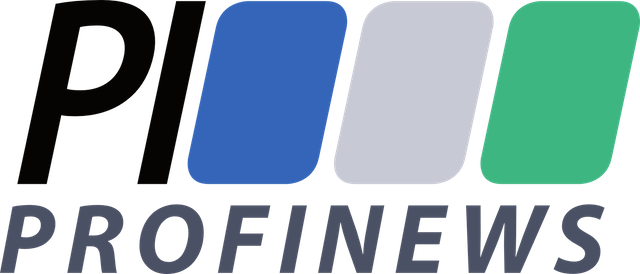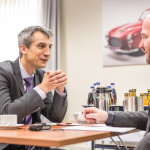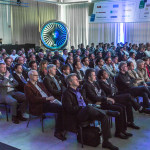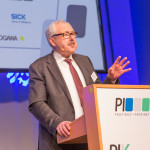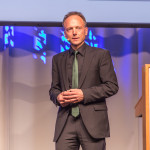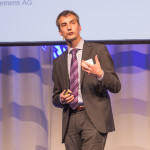Who is more knowledgeable about networks than PROFIBUS and PROFINET International? Reason enough to attend the PI Conference held once every 2 years. A variety of presentations and detailed technology-related workshops provided inspiration to the 270 participants.
The Technik Museum in Speyer was selected as the venue for the 4th PI Conference. It not only presented historical developments but also highlighted current technical development in various fields. At the event, users and manufacturers as well as experts and novices from all sectors discussed current issues on all aspects of PROFIBUS, PROFINET, and IO-Link. Because of the 25-year anniversary of PI Germany, the main theme “Network of the future – Partner of users for 25 years” was established at an early stage.
Michael Ziesemer, President of the German Electrical and Electronic Manufacturers’ Association (ZVEI), who has been connected to PI since the beginning, opened the PI Conference and outlined the past quarter century. Current requirements in everyday production were then highlighted in the many presentations. For example, one issue discussed was how to integrate technological progress in existing production plants. After all, partial technology replacements – during operation in some cases – are an everyday occurrence in large production areas. This calls for methods that enable fast and reliable migration.
For the first time, the 2015 PI Conference offered technology-specific workshops in addition to presentations. On the basis of real-world examples and smaller live models, these workshops provided users with in-depth insight into the benefits, handling, and use of PI technologies. The workshop topics included “Hands-on PROFIBUS PA – Installation, operation and maintenance” and “Easy IO-Link configuration – Device replacement during operation”.
Prof. Dr. Gunter Dueck, IEEE fellow, philosopher, and author, ensured a smooth transition to the evening event where participants could experience the “Network of today”. Covering concepts like swarm intelligence, he provided more than enough material for discussion. For new technologies, in particular, it is important to question over and over again whether the trend will endure over an extended time period. After all, networks may also require new rules, especially in matters related to security. While the economic potential for new industrial concepts such as smart factories, autonomics, and proactive maintenance is undisputed, some IT security issues remain unanswered. For this reason, a central role was given to this topic, which provided important food for thought.
